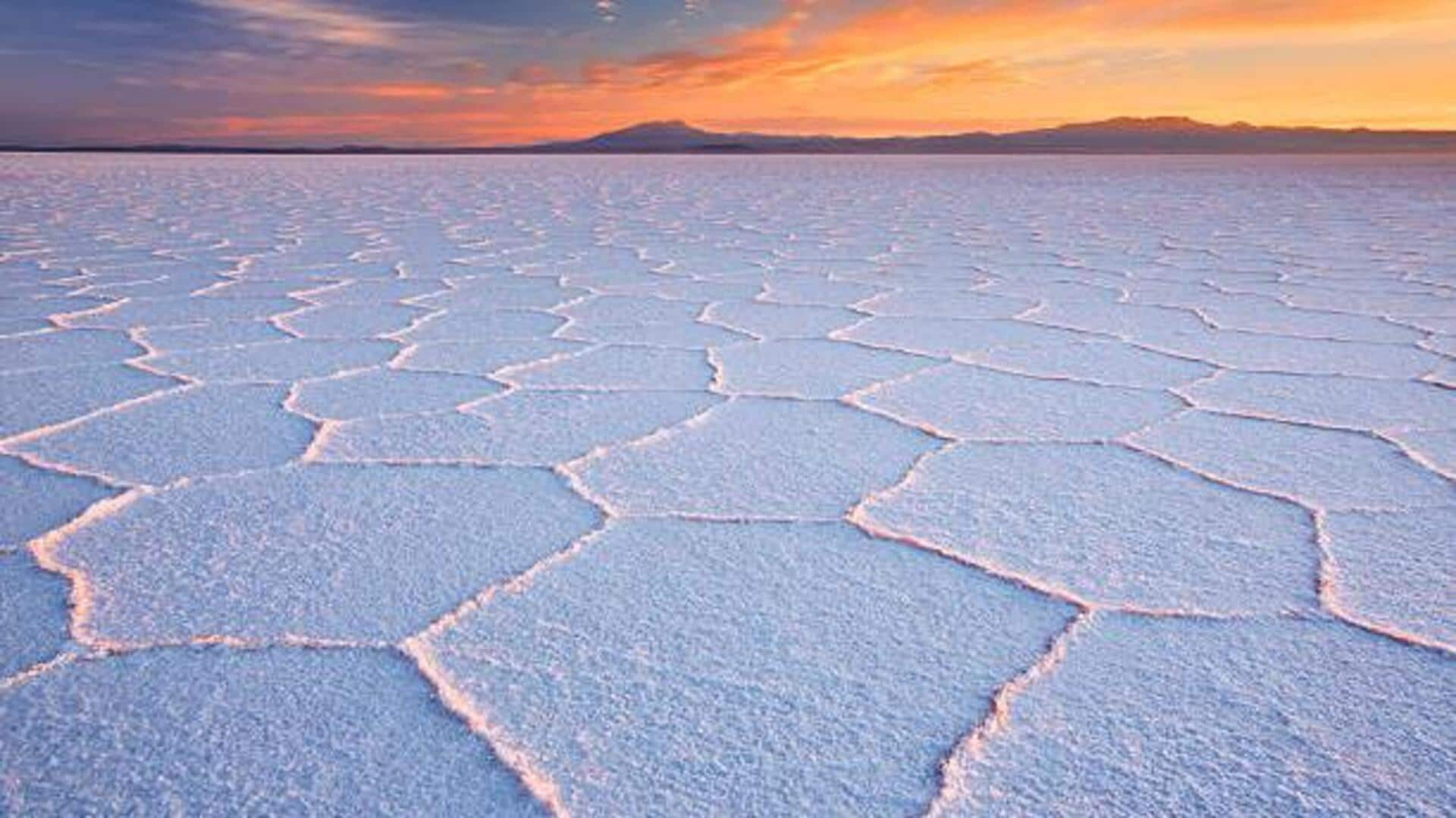
What makes salt flats a must-visit natural wonder?
What's the story
African salt flats are mesmerizingly beautiful and adventurous at the same time. These extensive, flat stretches of salt-crusted land give travelers the most otherworldly experience ever. From the glistening surfaces mirroring the skies to the deep cultural history associated with them, African salt flats are a must-visit for anyone wanting to witness nature's marvels. Here's what makes these destinations so special.
Makgadikgadi Pans
Exploring Salar de Uyuni's twin in Africa
The Makgadikgadi Pans in Botswana are one of the largest salt flats in the world. In the dry season, they turn into a stark white desert, presenting an incredible visual spectacle. One can either go quad biking across this vast expanse or take guided walks to learn about its unique ecosystem and history. The pans also become a temporary home for migratory birds during specific seasons.
Etosha Pan
Witnessing nature's mirror at Etosha Pan
Located in Namibia, Etosha Pan is a part of Etosha National Park and provides tourists with an opportunity to witness wildlife amid shimmering salt flats. The pan itself remains mostly dry but is filled with water during the rainy season, creating breathtaking reflections which lure photographers from around the world. It's also a great place to watch elephants, lions, and other wildlife roaming around.
Lake Assal
Discovering hidden gems at Lake Assal
Lake Assal in Djibouti is among Africa's saltiest lakes and also the lowest point in Africa (it lies below sea level). Its turquoise waters stand in stark contrast to surrounding white salt deposits, making for stunning views. You can easily float due to high salinity or check out nearby volcanoes and hot springs. Those up for the trip will enjoy this off-the-beaten-path adventure.
Chott El Djerid
Experiencing cultural richness at Chott el Djerid
Apart from its picturesque salt flats, Chott el Djerid in Tunisia is also famous for its cultural importance. The surreal landscape has served as a shooting location for many movies. Tourists can also explore local markets selling traditional crafts, or visit nearby oases that offer lush contrasts to the barren surroundings.
Safety tips
Tips for visiting African salt flats safely
When visiting African salt flats, it is also essential to prepare adequately due to their remote locations and harsh conditions. Bring plenty of water and sun protection, like hats and sunscreen, since temperatures can soar during daytime hours. Hiring local guides familiar with the terrain ensures safe navigation while providing valuable insights into each area's natural features and cultural history.